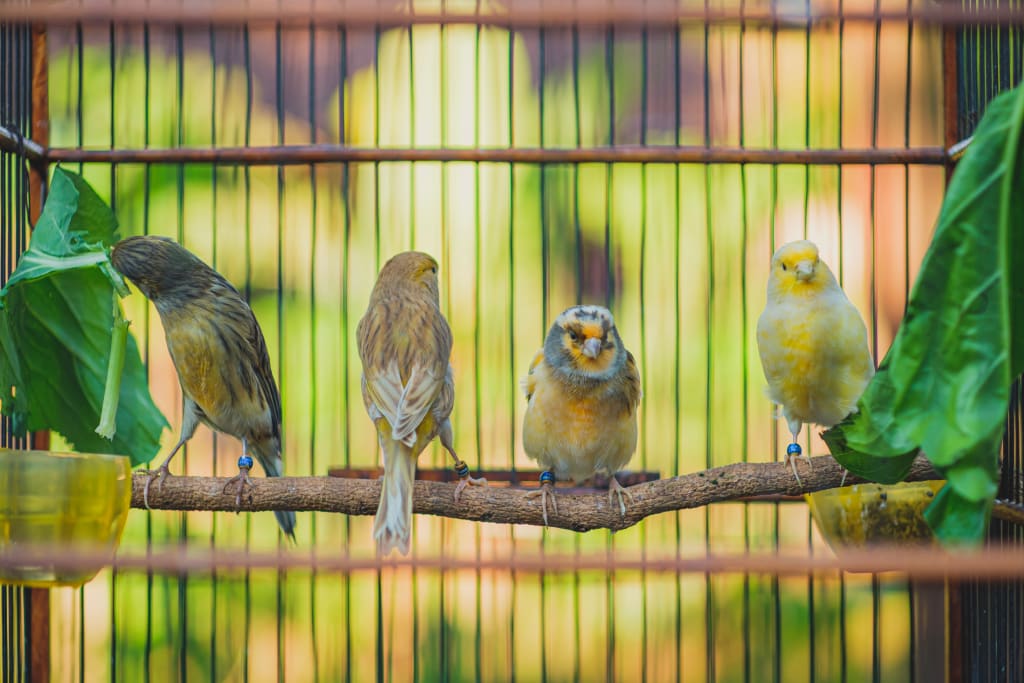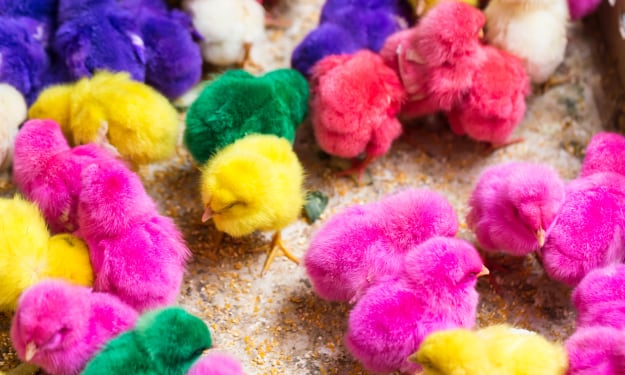Caring for Pet Birds: Tips and Insights for a Happy and Healthy Life
From Nutrition to Socialization: Understanding the Unique Needs of Your Feathered Friend

Introduction
Birds are fascinating creatures that have captured our imaginations for centuries. Many of us admire their beauty and marvel at their ability to fly. But for some of us, birds are more than just a fascination - they are beloved pets that bring joy and companionship into our lives.
Caring for pet birds is a unique and rewarding experience, but it also requires a great deal of knowledge and commitment. In this article, we'll explore the ins and outs of pet bird care, from housing and diet to exercise, socialization, and health. We'll also delve into the importance of understanding your bird's behavior and communication cues, as well as the role of mental stimulation and environmental enrichment in keeping your feathered friend happy and healthy.
Whether you're a seasoned bird owner or considering bringing a bird into your home for the first time, this article will provide you with valuable insights and tips for providing a happy and fulfilling life for your pet bird. So sit back, relax, and let's dive into the wonderful world of pet birds!
- Pet Birds Life
Birds make wonderful pets. They are fascinating creatures that come in all shapes, sizes, and colors. Whether you're looking for a bird that sings sweetly, talks, or just adds a splash of color to your home, there is a pet bird for everyone.
When it comes to caring for pet birds, it's essential to understand their unique needs. Here are some tips to help you provide a happy and healthy life for your feathered friend:
- Housing
Pet birds need a cage that's big enough for them to move around in comfortably. The cage should be placed in a quiet part of your home, away from drafts, direct sunlight, and the kitchen. Make sure the cage is cleaned regularly, and provide fresh water and food every day.
- Diet
A healthy diet is essential for pet birds. Different species have different dietary requirements, so it's important to research the specific needs of your bird. Generally, a balanced diet for a pet bird should include fresh fruits, vegetables, and seeds.
- Exercise
Just like humans, birds need exercise to stay healthy. Let your pet bird out of its cage for at least an hour every day, under supervision. Birds love to fly, climb, and play, so provide toys and perches that encourage these activities.
- Socialization
Pet birds are social creatures and thrive on interaction with their owners. Spend time with your bird every day, talking, singing, and playing. Some birds enjoy being held and petted, while others prefer to sit near their owners.
- Health
Regular veterinary check-ups are important to ensure your bird's health. Birds can hide signs of illness well, so it's essential to look for changes in behavior, appetite, and droppings. Keep the cage clean to prevent the spread of disease, and avoid exposing your bird to other sick birds.
One important aspect of caring for pet birds is understanding their behavior. Different species of birds have unique personalities and behaviors, so it's important to research your bird's breed to understand their natural tendencies.
For example, parrots are known for their ability to mimic speech and learn tricks, while canaries are known for their beautiful singing voices. Understanding your bird's natural behavior can help you create an environment that meets their needs and keeps them happy and healthy.
Another important consideration when caring for pet birds is their mental stimulation. Birds are intelligent creatures that need mental stimulation to stay engaged and healthy. Provide your bird with toys, puzzles, and activities that challenge their minds and keep them entertained.
In addition to mental stimulation, pet birds also need environmental enrichment. This can include things like perches of different sizes and textures, toys of different shapes and colors, and hiding places. Providing a varied and stimulating environment can help prevent boredom and behavioral problems in pet birds.When it comes to interacting with your pet bird, it's important to establish a bond of trust and respect. Birds can be sensitive creatures, and they may become stressed or frightened if they feel threatened or uncomfortable.
One way to build trust with your bird is through positive reinforcement training. This involves rewarding your bird for desired behaviors, such as stepping onto your hand or saying a particular word. With time and patience, you can train your bird to perform a variety of tricks and behaviors.
Another important aspect of interacting with your pet bird is communication. Birds use body language, vocalizations, and other cues to communicate with their owners and other birds. Learning to interpret your bird's body language and vocalizations can help you understand their needs and emotions.
Some common signs of stress or discomfort in birds include fluffed feathers, rapid breathing, trembling, and changes in behavior. If you notice these signs in your bird, it's important to take steps to address the underlying cause of their stress and make changes to their environment or routine as needed.
Finally, it's important to remember that pet birds are a long-term commitment. Many bird species can live for several decades, so it's important to think carefully before bringing a bird into your home. Make sure you can provide the time, attention, and resources necessary to care for your pet bird throughout their lifetime.
In addition to bonding with your pet bird, it's also important to provide opportunities for socialization with other birds. Birds are social creatures that thrive on interaction with other birds, so consider introducing your bird to a same-species companion if possible.
Conclusion
Caring for pet birds is a unique and rewarding experience that requires knowledge, patience, and commitment. From providing a safe and stimulating environment to understanding your bird's behavior and communication cues, there are many factors to consider when it comes to bird care.
By following the tips and insights outlined in this article, you can provide a happy and healthy life for your feathered friend. Remember to provide a nutritious diet, plenty of mental stimulation and environmental enrichment, and opportunities for socialization with other birds. Also, be patient and take the time to establish a bond of trust and respect with your bird through positive reinforcement training and effective communication.
With the right care and attention, your pet bird can be a beloved companion for many years to come. So go ahead and spread your wings - the world of pet birds awaits!
About the Creator
Enjoyed the story? Support the Creator.
Subscribe for free to receive all their stories in your feed. You could also pledge your support or give them a one-off tip, letting them know you appreciate their work.






Comments
There are no comments for this story
Be the first to respond and start the conversation.